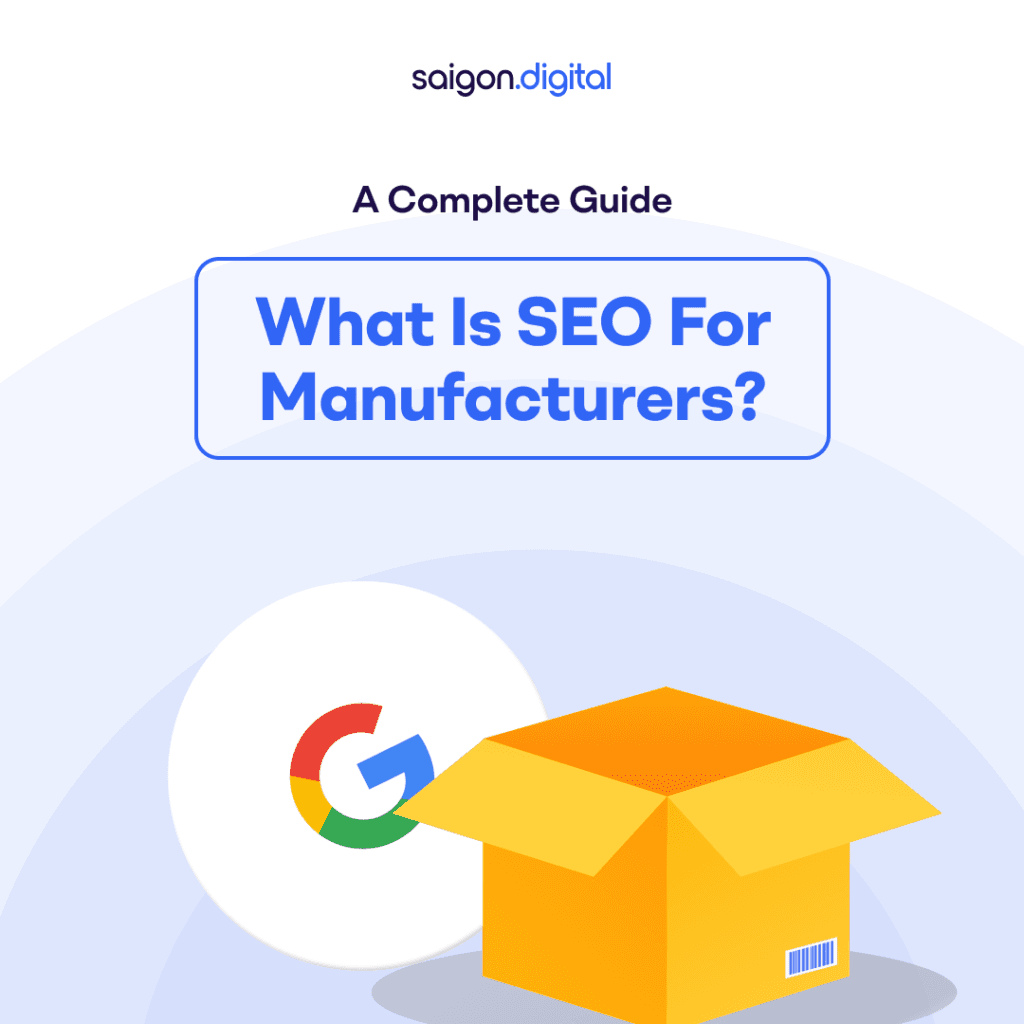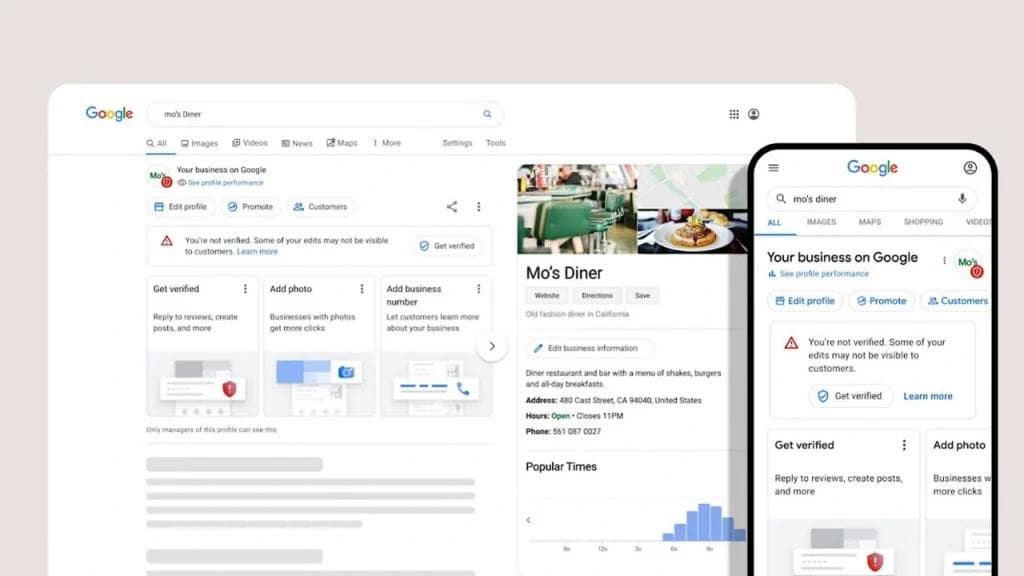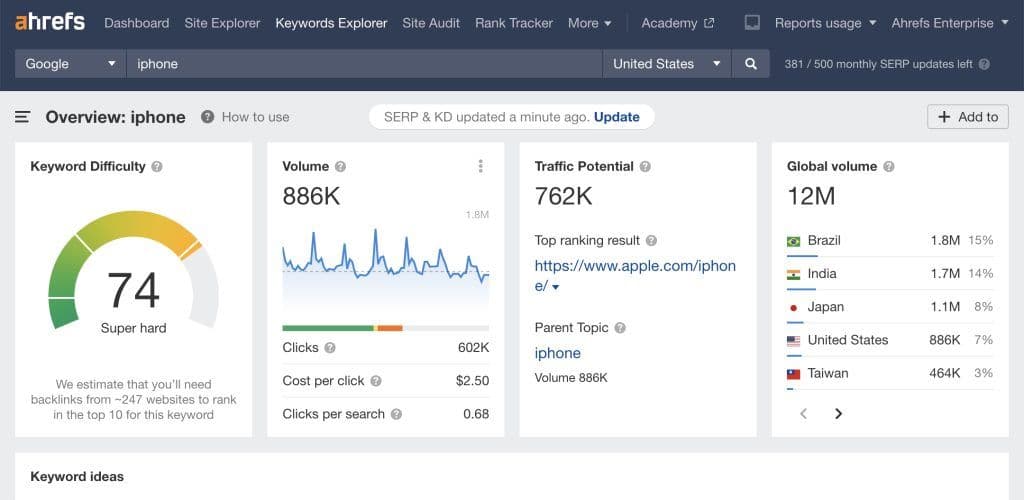
What Is SEO for Manufacturers?
SEO , or Search Engine Optimisation, is the process of optimising your website to increase its visibility on search engines like Google. The ultimate aim is to attract more qualified visitors to your site, people who are actively searching for what you offer. SEO for manufacturers , specifically, focuses on the unique needs and behaviours of industrial buyers, engineers, procurement professionals, and B2B decision makers. This involves crafting strategies that consider long buying cycles, technical content, niche keywords, and a global or regional market. Unlike general SEO, SEO for manufacturers isn’t about going viral or ranking for high-volume consumer keywords. It’s about making sure that when someone searches for “custom stainless steel enclosures” or “CNC machining services in the UK,” your company is found.Why SEO Matters for Manufacturers
For many manufacturing firms, digital marketing has historically taken a back seat to traditional methods such as trade shows, word of mouth, or direct sales. However, buyer behaviour has changed:- According to a consumer insights report from Think With Google, 71% of B2B buyers begin their journey with an online search.
- In the same report, Google also found that more than 50% of the decision making process happens before the buyer ever performs any action on your website.
- Having a strong online presence increases trust and legitimacy.
Core Components of SEO for Manufacturers
To be effective, SEO for manufacturers must take a comprehensive and strategic approach. Below are the most important areas to focus on.1. Keyword Research for Manufacturing Niches
Keyword research is the backbone of SEO. For manufacturers, this means targeting keywords that align with your specific products, services, and industry terminology. Examples of manufacturing related keywords might include:- “OEM automotive parts supplier”
- “Plastic injection moulding UK”
- “ISO certified precision engineering”
- “Steel fabrication in Manchester”
2. Technical SEO
Manufacturing websites often feature extensive product catalogues, PDFs, or legacy content systems. Technical SEO ensures that search engines can effectively crawl and index your site. Key elements include:a. Site Speed and Mobile Responsiveness
A fast-loading website is essential, not only for user experience but also for search engine rankings. Google considers page speed a ranking factor, especially on mobile devices. Many manufacturing websites suffer from outdated code, unoptimised images, or bulky scripts that slow performance. Ensuring your site loads quickly and adapts seamlessly across mobile devices improves usability for engineers or buyers who may be browsing on the go.b. Clean and Structured URLs
Search engines and users both benefit from simple, descriptive URLs. Avoid lengthy, parameter-heavy links or those filled with unreadable strings. For example, a URL like www.yourcompany.com/cnc-machining-services is far more effective than www.yourcompany.com/page?id=1234 . Clear URLs improve click-through rates and support better site structure, which is particularly important when dealing with extensive product catalogues.c. Meta Tags and Schema Markup
Meta titles and descriptions serve as your site’s first impression in search results. Properly optimised meta tags should include your target keywords while providing a compelling reason for users to click. Additionally, implementing schema markup , structured data that helps search engines understand the content on your page, can enhance visibility through rich snippets, such as star ratings or product details, which are especially valuable for product-based manufacturing pages.
d. Broken Links and Duplicate Content
Broken links can frustrate users and harm your site’s SEO credibility. Regularly auditing your site for 404 errors or outdated internal links is crucial, especially on large manufacturing sites with many product or datasheet pages. Similarly, duplicate content , often caused by repeated descriptions across product variants, can dilute your rankings. Implementing canonical tags and unique content helps maintain site integrity and avoids penalisation from search engines. A technically sound site improves user experience and is rewarded by search engines with better rankings.3. On-Page Optimisation
Each page of your website, whether a service page, case study, or product description, should be optimised for both users and search engines. This includes:a. Natural Use of Target Keywords
Incorporating your primary keywords into page titles, headers (H1, H2, etc.), and throughout the body copy helps search engines understand the topic and relevance of each page. However, it’s crucial to do this naturally, keyword stuffing can make content hard to read and may be penalised by search engines. For example, instead of repeating “sheet metal fabrication” excessively, use it where appropriate and support it with semantically related terms like “metal forming” or “laser cutting.”b. Unique and Informative Content
Each page on your website should offer original, valuable content tailored to its purpose. For manufacturers, this means avoiding copy-paste product descriptions or generic service summaries. Instead, describe your processes, capabilities, certifications, and use cases in a way that speaks directly to your audience, typically engineers, buyers, or project managers looking for specific solutions.c. Internal Linking Strategy
Internal links help both users and search engines navigate your website. Linking related pages, such as from a service page to a relevant case study or from a product page to a blog post, provides additional context and keeps users engaged. From an SEO standpoint, it also helps distribute authority across your site and guides search engines to prioritise your most valuable pages.4. Content Marketing and Thought Leadership
Manufacturers can benefit greatly from content marketing, especially when educating technical audiences. Blog posts, white papers, and case studies that explain your processes, highlight your innovations, or demonstrate past successes can be powerful tools. For example:- “How CNC Machining Reduces Time to Market”
- “Comparing Aluminium vs Steel for Custom Enclosures”
- “A Guide to CE Marking for Industrial Equipment”
5. Local SEO for Regional Manufacturers
If you serve specific regions or have physical locations, local SEO is crucial. This means:a. Google Business Profile Optimisation
Your Google Business Profile (formerly Google My Business) is often the first impression potential clients get when they search for your company or services locally. Ensure your profile is complete with accurate business information: address, phone number, business hours, and a clear description of your services. Adding quality photos, responding to customer reviews, and posting updates regularly can also improve engagement and local visibility in map and search results.
b. Location-Specific Website Pages
Creating dedicated location pages for each region or city you serve is a powerful way to signal relevance to search engines and users alike. For instance, if you provide metal fabrication services in Leeds, a targeted page titled “Metal Fabrication in Leeds” can help you rank locally. These pages should include unique content that highlights your experience in that area, local partnerships, or notable projects to add context and authenticity.c. Earning Local Reviews and Backlinks
Positive customer reviews and local backlinks are important trust signals for both search engines and human visitors. Encourage satisfied clients to leave reviews on Google and relevant industry platforms. Additionally, manufacturers should seek opportunities to gain local backlinks. For example, by collaborating with local trade associations, sponsoring regional events, or contributing thought leadership content to local industry publications. These activities not only enhance your local SEO but also build credibility within your community. When done properly, local SEO helps you appear in location-based searches like “metal fabrication Leeds” or “precision engineering near me.”6. Link Building
Inbound links (or backlinks) from other reputable websites signal to Google that your content is authoritative. Earning links from relevant industry directories, trade publications, and partner websites can significantly boost your SEO. For manufacturers, useful link-building tactics include:a. Industry-Specific Directories
Submitting your business to niche directories and manufacturing portals can be an effective starting point. Unlike generic directories, these platforms are highly targeted and often used by procurement officers, engineers, and project managers. Examples include directories specific to metalworking, industrial automation, or regional engineering networks. These listings not only improve visibility but also provide valuable backlinks from trusted sources.b. Collaborations with Clients and Suppliers
Many manufacturers work within a network of long-term clients, suppliers, or distributors. These existing relationships can be leveraged for link building through co-marketing opportunities, such as joint case studies, featured testimonials, or mutual press releases. These backlinks are especially powerful, as they come from closely related businesses and add contextual relevance to your domain.c. Creating Shareable, Data-Rich Content
Developing valuable content, such as white papers, industry insights, or research-based blog posts, can naturally attract backlinks from journalists, bloggers, or educational sites. For example, publishing a guide like “The Future of Precision Engineering in the UK” or sharing original data on material tolerances or manufacturing trends can make your site a go-to resource. The more useful and credible your content, the more likely others are to link to it.Common SEO Challenges for Manufacturers
SEO for manufacturers comes with its own set of challenges, such as:- Highly technical products that require niche keywords
- Long decision cycles, which can make tracking ROI more complex
- Legacy websites that are outdated or not mobile-friendly
- Limited internal resources for content creation and digital marketing
Measuring SEO Success in Manufacturing
SEO is a long-term investment, but it should be measurable. Key performance indicators (KPIs) to track include:1. Organic Traffic Growth
One of the most telling indicators of SEO progress is the increase in organic traffic, the number of visitors coming to your site via search engines. Monitoring this month-over-month or year-over-year helps you assess whether your visibility is improving. For manufacturers, steady growth in relevant traffic suggests that your content and keyword strategy are effectively reaching the right audience.2. Keyword Rankings for Target Terms
Tracking your keyword rankings allows you to see how well your site is performing for the specific search terms you’re targeting, such as “precision engineering services UK” or “CNC machining Birmingham.” Rising rankings for these terms mean your optimisation efforts are working, especially when tied to strategic landing pages or product offerings. Tools like SEMrush, Ahrefs, or Google Search Console can help monitor these positions over time.





